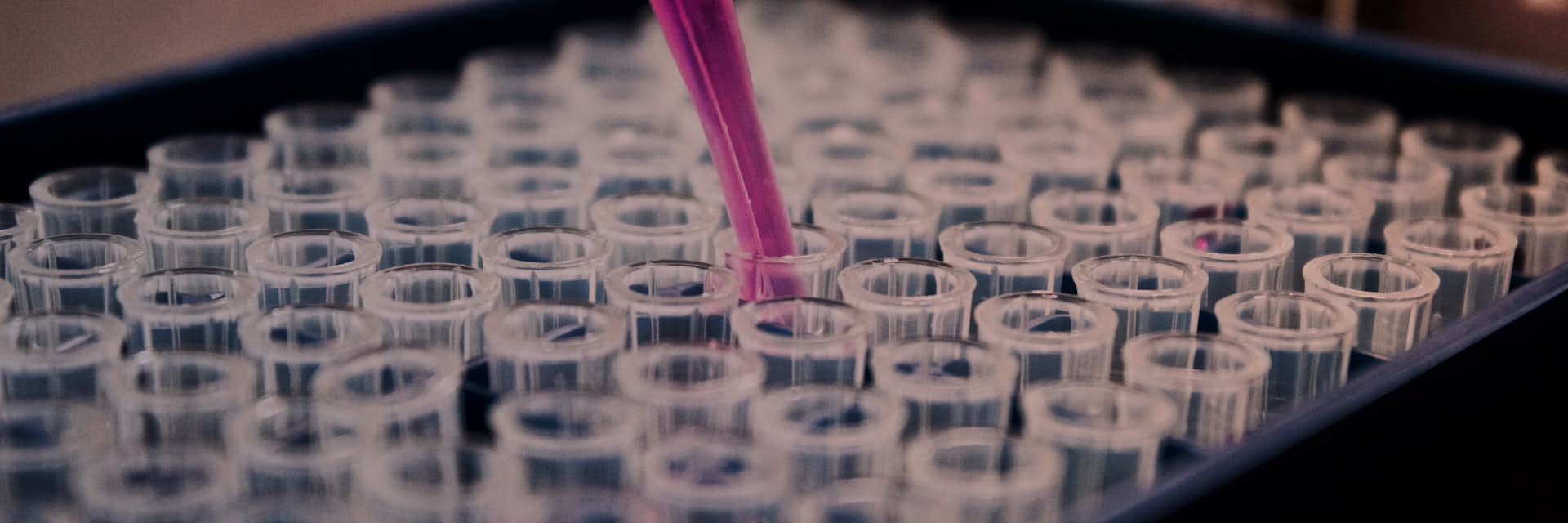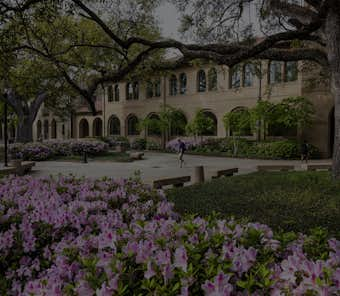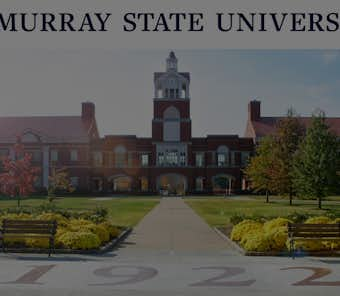
Study chemistry abroad
Find programs that match your eligibility and aspirations then apply with reduced application fees, a free assessment and access to a dedicated advisor.
Find your perfect chemistry programs abroad
Find chemistry programs you love that match your needs & aspirations, where you stand a high chance of acceptance.
Chemistry degrees abroad
Chemistry is one of the core scientific subjects, and its influence is wide reaching. It’s the study of matter, its properties and how substances interact with energy. It affects everything we see around us, and it overlaps with pretty much all other science subjects.
This could the perfect subject if you have a love of numbers and analysis, are naturally curious, and question how things work. Chemistry has been at the heart of some of the greatest scientific discoveries, and as a chemistry graduate you could help solve some of the world’s most pressing problems.
Chemistry degrees are offered at many universities all over the world, so you’ll have plenty of options when it comes to studying abroad. You could access some of the very best programs, using cutting edge technology that you may not have access to in your home country. Studying abroad is also an opportunity to leave your comfort zone and experience a whole new culture.

Why use Studee?
-
Find your ideal program
Filter 10,000s of programs down to a shortlist perfect for you, where you have a strong chance of getting admitted
-
Apply online via Studee
Complete our application form and enjoy reduced application fees and access to unique Studee scholarships for many universities
-
We assess within 48hrs
We complete an 85-point assessment within 2 business days, help you with improvements then submit to your university
-
University offer in 2-4 weeks
We chase the university for your admission decision and keep you updated. We all celebrate your admission!
All our services are 100% free as we're funded by universities. You pay deposits and tuition fees directly to the university.

Chemistry program structure
At undergraduate level you can study a BSc in chemistry over three or four years. Some universities offer a chemistry as an MSci, or MChem, which combines a bachelor’s and master’s course in one four or five year program.
You can study a master’s in chemistry as an MSc over one or two years If you already have a bachelor’s degree. Doctorate degrees are also available, and you can study a research based PhD which can take up to five years to complete.
Chemistry is a hugely wide ranging subject, with many different areas and specializations you can follow. Therefore, the content and structure of each program is likely to be different at each university.
Many programs will focus on the core areas of chemistry in the first year or two, and then allow more flexibility where you can choose the modules to tailor your program. The optional modules you can choose to study can cover a huge number of specializations including pharmacology, marine chemistry or medicinal chemistry.
Some of the main modules and areas of chemistry you can expect to study include:
- Biochemistry
- Mathematics for chemistry
- Organic chemistry
- Inorganic chemistry
- Physical chemisty
- Environmental chemistry
Types of chemistry degrees
Best countries to study chemistry
Chemistry study abroad programs
Chemistry undergraduate programs
Bachelor's in chemistry
-

Chemistry/Computing Science - BSc University of the South Pacific, Fiji
- Program type
- Bachelor's
- Duration
- 3 years
- Annual tuition fee
-
18,000 FJD
Fees are displayed in the university's local currency
- Start date
- July, February
-
Adolescent Education: Chemistry - BSc St. Francis College, USA
- Program type
- Bachelor's
- Duration
- 4 years
- Annual tuition fee
-
27,461 USD
Fees are displayed in the university's local currency
- Start date
- September, January
-

Chemistry - BSc Auckland University of Technology, New Zealand
- Program type
- Bachelor's
- Duration
- 3 years
- Annual tuition fee
-
35,444 NZD
Fees are displayed in the university's local currency
- Start date
- July, February
-

Chemistry - BSc Mount Royal University, Canada
- Program type
- Bachelor's
- Duration
- 4 years
- Annual tuition fee
-
23,100 CAD
Fees are displayed in the university's local currency
- Start date
- September
-

Chemistry - BS University of Colorado Denver, USA
- Program type
- Bachelor's
- Duration
- 4 years
- Annual tuition fee
-
30,641 USD
Fees are displayed in the university's local currency
- Start date
- June, August, January
Associate in chemistry
-

Chemistry - ASc Elgin Community College, USA
- Program type
- Associate
- Duration
- 3 years
- Annual tuition fee
-
9,655 USD
Fees are displayed in the university's local currency
- Start date
- August, January, June
-

Chemistry - AS-T Riverside City College, USA
- Program type
- Associate
- Duration
- 30 months
- Annual tuition fee
-
10,440 USD
Fees are displayed in the university's local currency
- Start date
- June, August, February
-
Chemistry - ASc Indiana Wesleyan University, USA
- Program type
- Associate
- Duration
- 2 years
- Annual tuition fee
-
31,168 USD
Fees are displayed in the university's local currency
- Start date
- September, January, May
-
Chemistry - ASc Santiago Canyon College, USA
- Program type
- Associate
- Duration
- 2 years
- Annual tuition fee
-
10,680 USD
Fees are displayed in the university's local currency
- Start date
- June, August, February
-

Chemistry - ASc North Seattle College, USA
- Program type
- Associate
- Duration
- 2 years
- Annual tuition fee
-
12,445 USD
Fees are displayed in the university's local currency
- Start date
- June, September, January, April
Diploma in chemistry
-

Chemistry - UGDip Langara College, Canada
- Program type
- Undergraduate diploma
- Duration
- 2 years
- Annual tuition fee
-
19,138 CAD
Fees are displayed in the university's local currency
- Start date
- September, January, May
Chemistry graduate programs
Master's in chemistry
-

Chemistry - MSc Carleton University, Canada
- Program type
- Master's
- Duration
- 2 years
- Annual tuition fee
-
19,016 CAD
Fees are displayed in the university's local currency
- Start date
- September
-
Chemistry - MSc Murray State University, USA
- Program type
- Master's
- Duration
- 2 years
- Annual tuition fee
-
8,640 USD
Fees are displayed in the university's local currency
- Start date
- August, January
-
Chemistry - MSc State University of New York at Oswego, USA
- Program type
- Master's
- Duration
- 2 years
- Annual tuition fee
-
19,537 USD
Fees are displayed in the university's local currency
- Start date
- August, January, June
-
Chemistry - MSc DePaul University, USA
- Program type
- Master's
- Duration
- 2 years
- Annual tuition fee
-
18,720 USD
Fees are displayed in the university's local currency
- Start date
- September, January, March
-
Chemistry - MSc American University, USA
- Program type
- Master's
- Duration
- 2 years
- Annual tuition fee
-
34,596 USD
Fees are displayed in the university's local currency
- Start date
- September, January
Doctorate in chemistry
-

Chemistry - PhD University of Canterbury, New Zealand
- Program type
- Doctorate
- Duration
- 1 year
- Annual tuition fee
-
7,099 NZD
Fees are displayed in the university's local currency
- Start date
- June, July, August, September, October, November, January, February, March, April, May
-

Chemistry - PhD University of Manitoba, Canada
- Program type
- Doctorate
- Duration
- 5 years
- Annual tuition fee
-
8,859 CAD
Fees are displayed in the university's local currency
- Start date
- September
-

Chemistry and Materials Science - PhD Lakehead University, Canada
- Program type
- Doctorate
- Duration
- 3 years
- Annual tuition fee
-
18,999 CAD
Fees are displayed in the university's local currency
- Start date
- September, January, May
-

Curriculum and Instruction: Chemistry - EdS/MEd Florida Atlantic University, USA
- Program type
- Doctorate/Master's
- Duration
- 2 years
- Annual tuition fee
-
19,456 USD
Fees are displayed in the university's local currency
- Start date
- January, May, August
-
Environmental Sciences: Environmental Chemistry - PhD Florida A&M University, USA
- Program type
- Doctorate
- Duration
- 2 years
- Annual tuition fee
-
25,868 USD
Fees are displayed in the university's local currency
- Start date
- August, January, May
Diploma in chemistry
-

Science and Technology: Chemistry - PGDip Massey University, New Zealand
- Program type
- Postgraduate diploma
- Duration
- 1 year
- Annual tuition fee
-
40,870 NZD
Fees are displayed in the university's local currency
- Start date
- July, November, February
-

Science: Chemistry - PGDipSc University of Canterbury, New Zealand
- Program type
- Postgraduate diploma
- Duration
- 3 years
- Annual tuition fee
-
39,500 NZD
Fees are displayed in the university's local currency
- Start date
- July, February
Certificate in chemistry
-
Secondary Education Science: Chemistry (Avery Hill Campus) - PGCE University of Greenwich, UK
- Program type
- Postgraduate certificate
- Duration
- 1 year
- Annual tuition fee
-
16,150 GBP
Fees are displayed in the university's local currency
- Start date
- September
Future chemistry careers
You might think as a chemistry graduate you’d be restricted to a career wearing a white coat in a lab, but it will open up many opportunities in a range of sectors. Chemistry graduates have gone on to become British Prime Ministers, famous novelists and astronauts, so the options really are endless.
Here’s some of the careers that you might consider after you graduate:
- Chemical engineer
- Forensic scientist
- Pharmacologist
- Toxicologist
- Science teacher
- Research scientist
- Environmental consultant
- Laboratory technician
- Finance
Some of the core skills you’ll gain from a chemistry degree, like numeracy and problem solving, are transferable to many different careers - so don’t limit your search to a career in the science industry.























